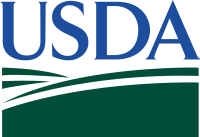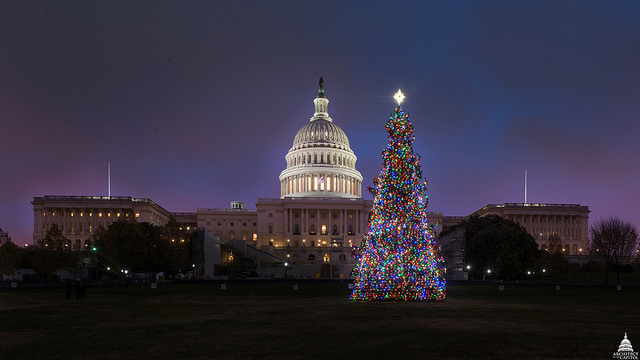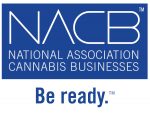On December 20, President Trump signed the Agriculture Improvement Act of 2018 (the Farm Bill) into law, which included an important change to the way federal agencies regulate hemp farming and production. The Farm Bill essentially removes hemp-derived cannabidiol (CBD) from the Controlled Substances Act in states that choose to regulate it. It strips the Drug Enforcement Agency’s (DEA’s) authority from outlawing hemp and gives states the ability to regulate hemp markets on their own, with approval from the United States Department of Agriculture (USDA).
 This gives the USDA the authority to regulate hemp farming, providing for things like access to banks, insurance, grants, certifications and gets rid of the need for a pilot program, which was previously the case under the 2014 Farm Bill. It also defines hemp a little better, to include cannabinoids, derivatives and extracts.
This gives the USDA the authority to regulate hemp farming, providing for things like access to banks, insurance, grants, certifications and gets rid of the need for a pilot program, which was previously the case under the 2014 Farm Bill. It also defines hemp a little better, to include cannabinoids, derivatives and extracts.
According to Aaron Smith, executive director of the National Cannabis Industry Association (NCIA), the signing of the Farm Bill is a crucial step towards full legalization. “The lifting of the federal ban on non-psychoactive hemp is a concrete sign that the ‘reefer madness’ which first led to its criminalization is finally coming to an end,” says Smith. “This Farm Bill is a step in the right direction for comprehensive cannabis policy reform and will help fuel discussions in Congress about the best ways to end federal prohibition and create a regulated national cannabis market.”
 However, one particularly important caveat needs to be mentioned: The Food and Drug Administration (FDA) still retains regulatory authority over CBD products. In a statement released the same day that the Farm Bill was signed, the FDA addressed their oversight capabilities. “We’ll take enforcement action needed to protect public health against companies illegally selling cannabis and cannabis-derived products that can put consumers at risk and are being marketed in violation of the FDA’s authorities,” reads the FDA statement. “The FDA has sent warning letters in the past to companies illegally selling CBD products that claimed to prevent, diagnose, treat, or cure serious diseases, such as cancer. Some of these products were in further violation of the FD&C Act [Federal Food, Drug and Cosmetics Act] because they were marketed as dietary supplements or because they involved the addition of CBD to food.”
However, one particularly important caveat needs to be mentioned: The Food and Drug Administration (FDA) still retains regulatory authority over CBD products. In a statement released the same day that the Farm Bill was signed, the FDA addressed their oversight capabilities. “We’ll take enforcement action needed to protect public health against companies illegally selling cannabis and cannabis-derived products that can put consumers at risk and are being marketed in violation of the FDA’s authorities,” reads the FDA statement. “The FDA has sent warning letters in the past to companies illegally selling CBD products that claimed to prevent, diagnose, treat, or cure serious diseases, such as cancer. Some of these products were in further violation of the FD&C Act [Federal Food, Drug and Cosmetics Act] because they were marketed as dietary supplements or because they involved the addition of CBD to food.”
The Farm Bill signing opened the doors for hemp cultivation and production in the United States.What the FDA said in their statement is crucial information for those developing hemp-derived products. They recommend that companies use traditional pathways to get approval from the FDA to market their products, providing the Epidiolex example where the drug manufacturer used clinical studies to prove the drug’s efficacy.
The FDA also notes that there are circumstances “in which certain cannabis-derived compounds might be permitted in a food or dietary supplement.” That means they are exploring opportunities for companies to develop, manufacture and market legal CBD products without going through the extensive drug approval process.States need to establish programs approved by the USDA and companies need to cooperate with the FDA, taking the necessary steps to get their products and marketing approved.
In the food ingredients realm, they have already taken steps to approve hulled hemp seeds, hemp seed protein and hemp seed oil as generally recognized as safe (GRAS). “Therefore, these products can be legally marketed in human foods for these uses without food additive approval, provided they comply with all other requirements and do not make disease treatment claims,” reads the FDA statement.
The Farm Bill signing opened the doors for hemp cultivation and production in the United States. It allows farmers to access the same goods and services extended to other commodities farming, it makes conducting business easier across state lines, it will pave the way for more research into hemp as an effective medicine and helps to end the debate over hemp’s legality. But this doesn’t mean any business can just start producing and selling CBD products. States need to establish programs approved by the USDA and companies need to cooperate with the FDA, taking the necessary steps to get their products and marketing approved.
In the coming months and years, we will see which states decide to develop hemp cultivation programs and how the proliferation of hemp-derived products will evolve under FDA regulatory oversight.








